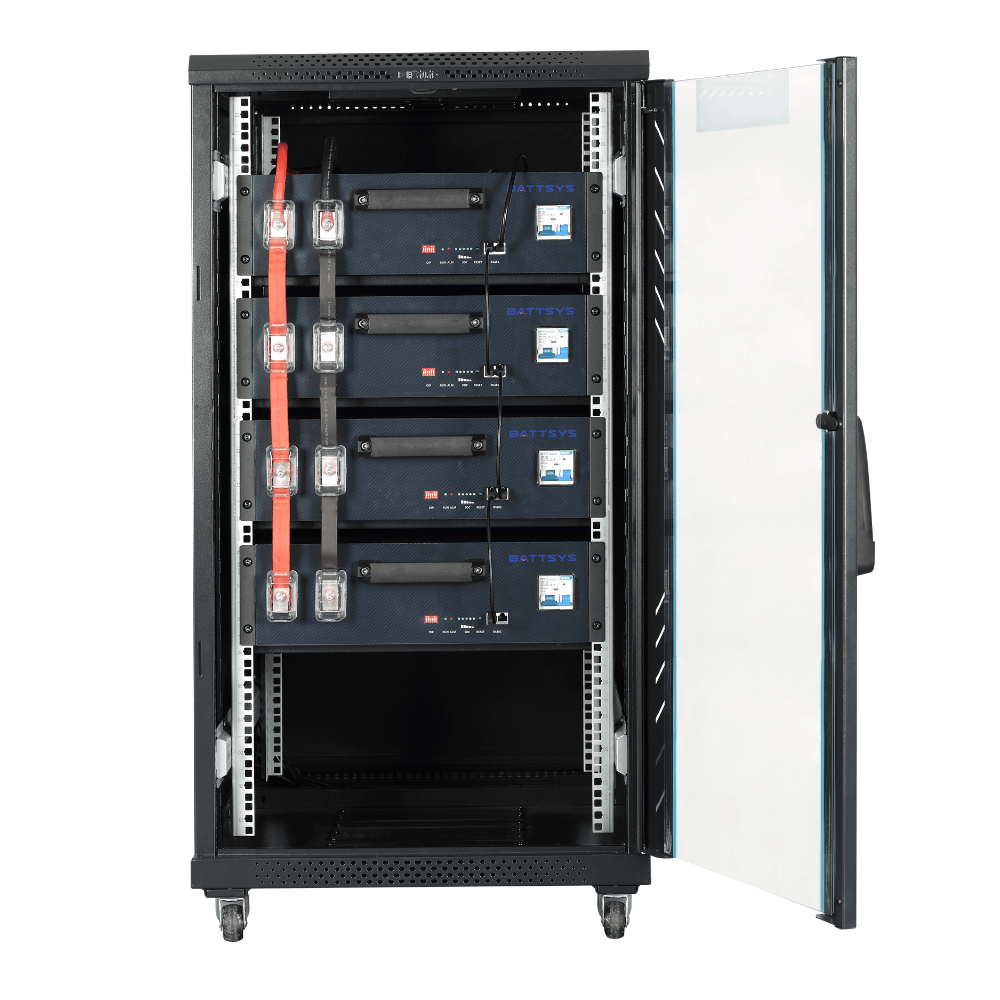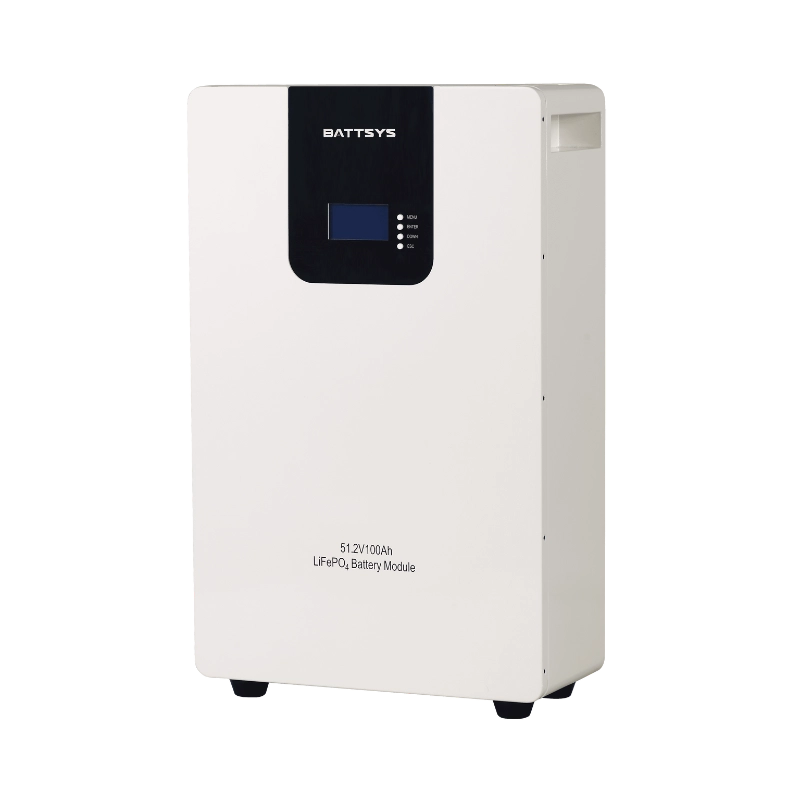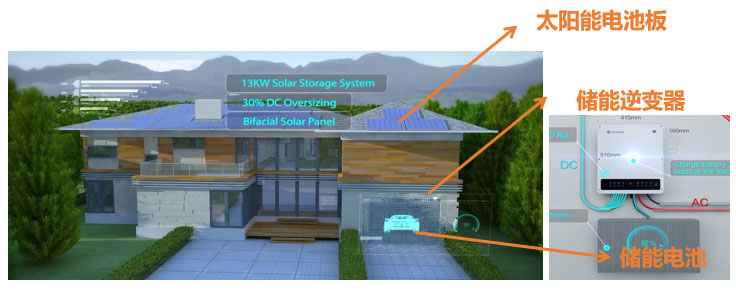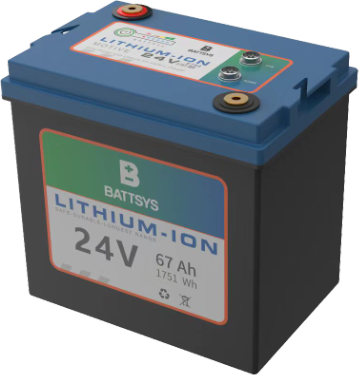A new era of home battery backup has arrived! Battsys home storage batteries, with features like long-lasting energy storage and help reduce your dependence on the grid.
A home battery backup, often referred to as a home energy storage system, is an electrical energy storage product or battery energy storage system (BESS) that is primarily used to store electrical energy for emergencies. The core component of such a system is a rechargeable battery, usually a lithium-ion or lead-acid battery, along with other components such as an inverter and an intelligent control system.
Home energy storage is the storage of electrical energy for use when needed - also known as electrical energy storage products or “battery energy storage systems” (BESS), hereinafter referred to as home storage. The core component of a BESS is a rechargeable battery, typically a lithium-ion or lead-acid battery. The other components are an inverter, a control system that intelligently controls charging and discharging.
Battsys home backup battery is committed to providing high-safety, high-quality LiFePO4 energy storage systems with a longer lifespan and an impressive 6,000 cycles. Maximize the use of rooftop solar power, reduce your electricity bills, and enjoy reliable backup power, allowing you to use clean, cost-effective energy at home around the clock.





Battsys Battery Backup Power for Home from rooftop solar power generation equipment, household wind turbines, and low-cost power of social power supply systems. This system can be used at peak times, not only meets emergency purposes, but also useful for family electricity costs saving.

High-safety LFP battery, 10 years design life, cycle life≥4000 times.Flexible Configuration.
Learn More
LFP Battery, 10 years of service life, over 6500 cycles
Learn MoreHome standby power (referred to as home energy storage) as a home emergency power supply, it can not only for home appliances, power tools and other equipment power supply, but also for home emergency lighting, cell phones, digital cameras and other equipment power supply, etc.
Benefits of Battsys home backup energy storage batteries
Safe & reliable: High-safety LiFePO4 battery.Long Cycle Life: 10 years life, cycle life up to 6000 times, intelligent equalization for maintenance-free.Low cost-effectiveness: Power consumption without relay design, low cost once pay the fee andno worries for the rest of your life.High compatibility: Compatible with mainstream frequency inverters of multiple brands.Flexible configuration: Modular design, easy to expand, and easy to install and modify.Intelligent operation and maintenance: Supports WiFi and App monitoring.
The duration of a backup battery depends on its type, charge, frequency of use and demand. Under normal circumstances, a backup battery can provide a few hours to a full day of use.
A family installed 5kW PV system, the average daily electricity consumption of about 20kWh, night (assuming that the price of electricity peak and valley period for 17:00 - 22:00 a total of 5 hours) electricity consumption of 15kWh. Assuming that, according to the measurement, the effective capacity of the battery to cover the family's nighttime electricity consumption of 2/3 for the optimal return on investment point. Then, the effective capacity of the battery should be about 15*2/3=10kWh, then the battery is about 10kWh/5kW=2h, which is less than or equal to the night-time electricity consumption of 5h. Therefore, the effective capacity of the battery for this family can be optimized to 10kWh.
The total cost of installing a 10kW solar cell system is approximately $8,000-$10,000. The specific costs are as follows: Solar panel: about 5500-6000 USD. Inverter: about 1400-1500 USD. Racking, cables and accessories: about 1000 USD. Installation cost: about 800-1200 USD (10-15% of the total equipment cost).
Battery Pack Capacity: For general household use, the recommended battery pack capacity is 10kWh. This capacity can meet the daily power needs of most households, including lighting, home appliances, etc.
The best source of home backup power is a solar PV system. Solar power systems are an environmentally friendly and reliable backup power solution. By installing solar panels that convert sunlight into electricity, homes can generate their own power. Not only does such a system provide a backup power source for the home, but it also reduces dependence on traditional electricity supply and saves on energy bills.
1. Use protective plates: When installing solar panels, protective plates should be laid underneath the panels to prevent damage to the panels.
2. Prevent over-discharge: Never over-discharge the battery to prevent the battery life from shortening.
3. Regular charging: The battery that is not used for a long time also needs to be charged regularly to maintain its normal operation.
4. Pay attention to waterproofing: After installing the solar panel, you need to pay attention to its waterproofing to ensure that the system is not violated by rain.
The average cost of a professionally installed, grid-tied home battery is generally between $1,000 to $1,500 per kWh, according to Battsys.
When choosing a home energy storage battery, you can consider the following factors:
1. energy storage capacity: choose the right storage capacity for your home's energy needs and budget. Storing more energy means you can use power longer during blackouts or low energy periods.
2. Charge and Discharge Efficiency: Knowing how efficiently a battery charges and discharges can help you evaluate how efficiently it utilizes energy. An efficient storage battery will minimize energy loss and provide more usable power.
3. Cycle Life: It is important to understand the cycle life or lifespan of a battery. This refers to the number of charge/discharge cycles a battery is capable of and how much it loses during cycling. Choosing a battery with a long life and reliability will reduce subsequent maintenance and replacement costs.
4. Safety: Ensure that the battery you choose has a high degree of safety, including overcharge, overdischarge and short circuit protection. This will help prevent fire and other accidents.
5. Brand reputation and after-sales service: Choose an energy storage battery from a reliable brand so that you can get better product quality and reliable after-sales service. Checking user reviews and feedback is also an important way to choose the right battery.
6. Cost: The price of energy storage batteries varies by capacity and brand, so make a reasonable choice based on your budget. It is also important to evaluate the payback rate of energy storage batteries considering the energy storage and energy saving advantages they may bring you.

Our excellent sales and technical team help your business find the best Rol rate

E-Mail: inquiry@fentbattery.com
Address: No.3, Dongli Road, Xili, Dongyong Town, Nansha District, Guangzhou City, China
0086 20 3901-1403Copyright:Guangzhou Battsys Co.ltd